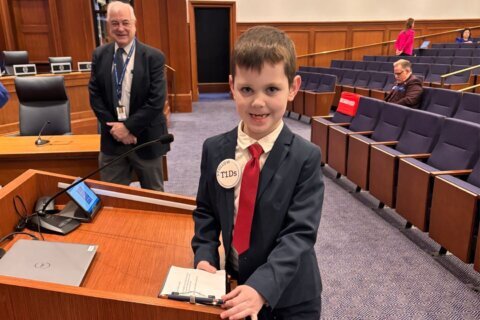With the new majority in the Virginia General Assembly, Democrats swept into office promising action on several pieces of gun legislation.
Even before the General Assembly session began in January, Gov. Ralph Northam unveiled a package of legislation containing several proposals to tighten and restrict access to guns in the commonwealth.
The proposals were met with fierce opposition by gun-rights supporters, thousands of whom rallied in January against the measures.
In the end, seven of the eight pieces of legislation proposed by Northam were approved by the General Assembly — in some form.
One of the highest-profile bills — a ban on the sale of assault weapons — was stalled in the Senate, after a handful of Democrats voted with their Republicans colleagues to shelve the bill.
Still, a number of other gun-related measures did pass the General Assembly.
Here’s a look at the key new pieces of gun legislation passed by the Virginia General Assembly.
Key bills
‘Red Flag’ law
This measure allows police and prosecutors to temporarily take guns away from people judged to be a risk to themselves or others.
The measure would allow local authorities, including police or prosecutors, to obtain what’s known as a “substantial risk order” from a court to prohibit a person from buying or having a gun. Subject to a court hearing, the risk order could be issued for up to six months.
People who are subject to a substantial risk order are disqualified from having or getting a concealed carry permit.
Virginia State Police would be required to keep and maintain a digital system for keeping track of people subject to substantial risk orders.
No guns for people under protective orders
In a related vein, this measure prohibits any person subject to a permanent protective order — which can last for up to two years — from possessing firearms while the order is in effect.
Under the measure, anyone under such an order has 24 hours to surrender their firearms to law enforcement or sell or transfer them to someone else who is allowed to have them.
Expanded background checks
This measure expands background checks for all gun sales. Currently, only licensed firearms dealers are required to conduct background checks before making sales.
To smooth over differences between the House and Senate versions, lawmakers agreed the expanded checks would only apply to gun sales, not all gun transfers (such as trades and loans), as the original version of the House bill called for.
Reporting lost or stolen guns
The law requires gun owners to report lost or stolen guns to police within 48 hours. The House version would have required gun owners to report lost or missing firearms within 24 hours. But the looser reporting requirements were required to win passage in the Senate.
Lt. Gov. Justin Fairfax broke a tie in the Senate to get the bill — with the 48-hour rule — passed.
In-person safety training for concealed carry permits
This measure tightens training requirements for people applying for concealed carry permits, requiring them to complete an in-person safety course.
Currently, applicants have the option of completing online training courses. (The new requirement wouldn’t take effect until January 2021).
Cities and towns can ban guns in public buildings
The measure allows Virginia localities to ban guns in public buildings, parks and other areas, including recreation and community centers. The law also applies to streets where events or rallies requiring permits are taking place.
(Previously, the state’s firearms preemption law had barred cities and towns from passing their own gun control measures).
The new rules require clear signage and exempt Virginia Military Institute cadets or other members of college ROTC programs.
Gun-rights supporters say the measure could lead to a patchwork of confusing ordinances across the state.
One handgun per month
This measure restores the state’s former one-handgun-per-month law. The measure prohibits any person who is not a licensed firearms dealer from buying more than one handgun in a 30-day period.
The bill exempts people who have been granted a special certificate by Virginia State Police who have undergone an enhanced background check; law enforcement officers; state and local corrections officers; licensed private security companies; people who had a handgun stolen or “irretrievably lost”; and purchases of antique firearms.
In order to win Senate passage, lawmakers also voted to exempt concealed-carry permit holders from the limit.
Tougher penalties for unsecured loaded guns
This new law sets down stricter penalties for “recklessly leaving” a loaded, unsecured gun in a way “that endangers the life or limb” of a child under 14.
The bill increases the penalty from a Class 3 misdemeanor (punishable by a $500 fine) to a Class 1 misdemeanor (punishable by up to a year in jail and a fine of $2,500).
The original House version of the bill would have made the offense a felony and applied to any child under age 18.
Other measures
Other pieces of gun-related legislation approved by lawmakers this session include:
- Allowing gun buyback programs that destroy guns rather than the current requirement that the guns be resold.
- A measure to bar local school boards from allowing anyone to carry firearms on school property except for people already expressly authorized by law, such as school resources officers.
- Establishing a voluntary “do not sell list” for guns that people could put themselves on, as part of an effort to prevent suicides.
- Requiring registered home day cares to keep guns locked and away from children.
- Making most day cares gun-free zones, similar to schools for older children.
WTOP’s Max Smith contributed to this report.








